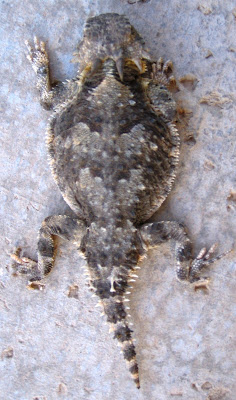 R. Joseph Collet ("Joe") currently operates a family business based upon providing mineral ingredients to formulators of nutritional supplements for human consumption, and that of livestock (particularly, pedigree horses) and pets, as well as, for use in the agricultural industry. He is the author of several business plans, websites [such as http://www.montmorillonite.biz/ ]
R. Joseph Collet ("Joe") currently operates a family business based upon providing mineral ingredients to formulators of nutritional supplements for human consumption, and that of livestock (particularly, pedigree horses) and pets, as well as, for use in the agricultural industry. He is the author of several business plans, websites [such as http://www.montmorillonite.biz/ ]books and articles, about Mineral Extraction and Supplementation, Genetics, Genealogy, Myrmecology, Herpetology, and Comparative Religion. In 1976 he was awarded a Juris Doctor from the University of California—Hastings College of the Law, and has been a perpetual student ever since, and enthusiastic instructor. Dr. Collet has a working knowledge with various degrees of fluency in five European languages, and has traveled extensively throughout the Pacific Islands and to all continents--with the exception of Antarctica.
After the culmination of a 20-year international career including 12 years residence in Europe as an executive and business manager for some of the greatest names in the professional golf industry, he returned to his native Southwest to be closer to his extended family. There
 he has renewed his passion for science and completed additional college courses at Dixie State College of Utah in Botany, Chemistry, Ecology, Geology and Genetics, graduating Summa Cum Laude with an Associate's of Biological Sciences degree in April of 2007. Cognizant of the proper application of minerals as an integral part of the nutritional regimen, and concerned about the premature onset of the effects of aging, Dr. Collet recently began conscientiously studying intelligent ways of forestalling the same. He currently resides in St. George, Utah with his wife, Rebecca. They are the parents of three adult children, and have two grandchildren. He can be reached by e-mail at joe@chelatedtraceminerals.com .
he has renewed his passion for science and completed additional college courses at Dixie State College of Utah in Botany, Chemistry, Ecology, Geology and Genetics, graduating Summa Cum Laude with an Associate's of Biological Sciences degree in April of 2007. Cognizant of the proper application of minerals as an integral part of the nutritional regimen, and concerned about the premature onset of the effects of aging, Dr. Collet recently began conscientiously studying intelligent ways of forestalling the same. He currently resides in St. George, Utah with his wife, Rebecca. They are the parents of three adult children, and have two grandchildren. He can be reached by e-mail at joe@chelatedtraceminerals.com .Joe, as he likes to be called is the first, documented resident to have captively bred in the State of Utah, and produced viable offspring of the following non-native horned lizard species: Phrynosoma cornutum, P. coronatum, P. m'calli, P. modestum and P. solare and has produced hybrids between P. platyrhinos/m'calli, and P. platyrhinos/modestum that reached sexual maturity. His studies lend credence to the hypothesis that P. m'calli and P. platyrhinos are not a distinct species, but probably varieties of the same species (or "subspecies"), since a number of the offspring of each generation once again reproduced not only with siblings, but with other P. playtrhinos.

 Don't poison the big black ants, or "red" ants. They are worth money!
Don't poison the big black ants, or "red" ants. They are worth money!
If you are interested in horned lizards, Dr. Collet needs about 6000-8000 harvestor ants (Pogonomyrmex californicus, P. maricopa, P. occidentalis,  and P. rugosus are the most common species found in Washington County) daily, plus all sorts of other ant species (especially, Camponatus,
and P. rugosus are the most common species found in Washington County) daily, plus all sorts of other ant species (especially, Camponatus,  Myrmecocystus) and insects to feed his specimens. In the Autumn he usually has lots of hatchlings and they have an affinity for termites and small formicoid ants. If you know where to get gillions of uncontaminated termites, Dr. Collet will be your friend.
Myrmecocystus) and insects to feed his specimens. In the Autumn he usually has lots of hatchlings and they have an affinity for termites and small formicoid ants. If you know where to get gillions of uncontaminated termites, Dr. Collet will be your friend.
 and P. rugosus are the most common species found in Washington County) daily, plus all sorts of other ant species (especially, Camponatus,
and P. rugosus are the most common species found in Washington County) daily, plus all sorts of other ant species (especially, Camponatus,  Myrmecocystus) and insects to feed his specimens. In the Autumn he usually has lots of hatchlings and they have an affinity for termites and small formicoid ants. If you know where to get gillions of uncontaminated termites, Dr. Collet will be your friend.
Myrmecocystus) and insects to feed his specimens. In the Autumn he usually has lots of hatchlings and they have an affinity for termites and small formicoid ants. If you know where to get gillions of uncontaminated termites, Dr. Collet will be your friend. 